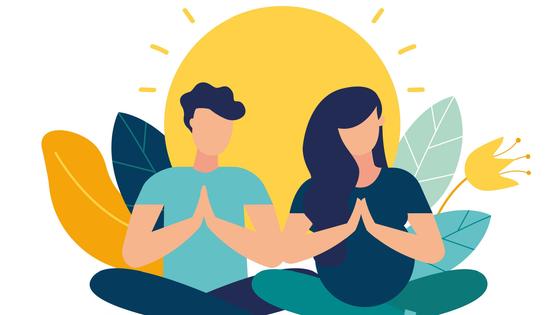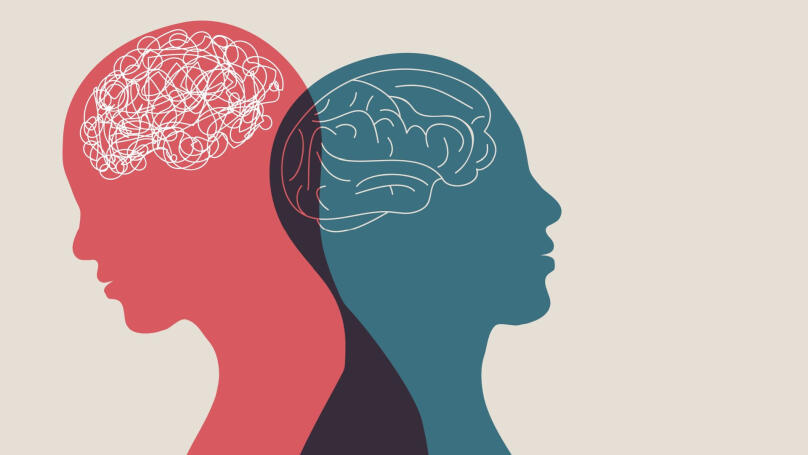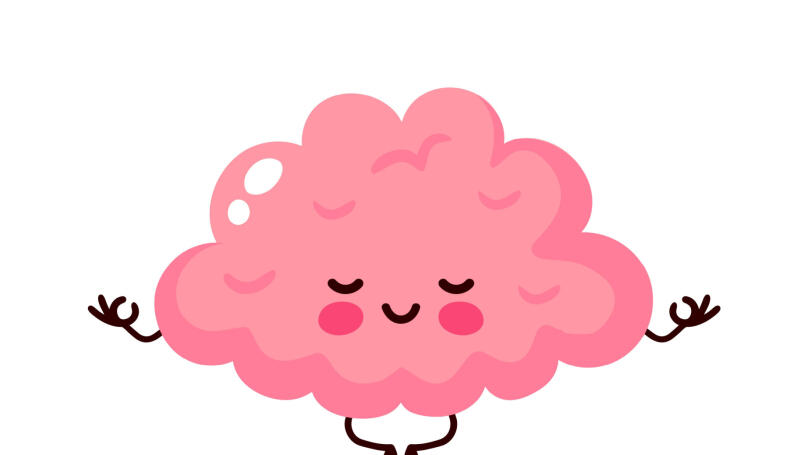Mindfulness: What is mindfulness, and how do you develop it?
Mindfulness has become a popular trend in psychology in recent years. It is believed to help cope with stress, increase productivity, increase emotional intelligence, and learn new soft skills faster.

In this article, we will discuss the phenomenon of mindfulness and what techniques you can use to develop mindfulness in your everyday life.
All you need to know about mindfulness.
Translated from the original Russian text of this article, "внимательность" is taken from the English word "mindfulness." The definition of "mindfulness" is the psychological process of becoming deeply aware of what is happening at any given moment. It is the ability to perceive your surroundings and your inner state – your feelings, emotions, and desires. Moreover, it is essential to clarify that mindfulness perception must be non-judgmental and objective, without distorting the assessment in one's favor - this is where the complexity of the concept lies. The American Mindfulness Research Association sees mindfulness as freedom from automatism and inertia. So, developing mindfulness also requires courage because one must accept life as it is.
The main question to regularly ask oneself regularly to develop mindfulness is: "How am I feeling right now?" In this case, it is not the vital answer but the very fact of understanding this or that feeling. So, answer the question honestly and accept your experiences. Mindfulness helps us to stay motivated, productive, and stress-free because we are always in touch with reality and aware of our emotions, including the negative ones.
Mindfulness is also an essential component of cognitive behavioral psychology. That is why psychology widely uses it to treat depression and anxiety disorders in patients. So, by mastering mindfulness yourself, you will minimize the risks of developing them in yourself. Furthermore, to better manage your emotions, conquer anxiety and gain the confidence to tackle any problem, we recommend one of our most popular courses, "Stress management: methods of achieving internal balance"
The Benefits of Mindfulness

Mindfulness techniques can significantly impact a person's consciousness, cognitive functions, and mental health. Below we have provided some evidence in favor of mindfulness.
-
A few years ago, scientists proved that the practice of mindfulness also manifests on a physical level - the concentration of grey matter in our brain's areas for remembering and learning increases. Accordingly, mindfulness improves memory and learning ability.
-
Mindfulness practice reduces stress, anxiety, and worry. Scientists have also confirmed that mindfulness helps one to regulate stress and manage one's reactions.
-
Because mindfulness practice gets rid of increased anxiety, it helps normalize sleep, eliminating insomnia, various disorders, and disturbances.
-
Mindfulness can also unleash your creativity! Mindfulness enhances the imagination and has a significant influence on creative thinking.
How to quickly develop Mindfulness

One of the most common ways to develop mindfulness and the most crucial mainstreaming technique is meditation. Often such practices are associated with ancient religious traditions such as Buddhism, but meditation is the same as yoga or fitness in today's world. In short, they are useful for everyone and require nothing more than the willingness to practice them.
First and foremost, meditation aims to gain peace of mind and restore inner resources. Researchers at Harvard have found that when you meditate, your brain rests by not having to process vast and customary amounts of information. Simply put, regular meditation allows one to stop, "breathe out," relax, and then look at any problem with fresh eyes. The key here is to abstract away from the outside world. Instead, focus on yourself, your feelings, and your thoughts.
If you are new to this, we suggest you start with some universal techniques. One is the so-called "sultana" meditation, which consists of taking a small sultana in your hand, closing your eyes, and trying to feel it. Your focus should be entirely on a tiny sultana. First, feel its shape and smell, and then use your imagination to imagine how the sultana was made and what it was like before it was dried. By the way, it doesn't have to be sultanas at all! You can use anything instead.
Another such meditation for mindfulness, concentration, and tranquillity is mindful breathing. It's simple: sit back, straighten your back, and keep your feet flat. It is best to turn off your phone and ensure nothing disturbs you. Then close your eyes and concentrate on your breathing. Slowly take inhales and exhales of breath, and you may start to rush around mentally or think of something. The main thing is to contain this impulse and be able to focus on your breathing again.
In addition to meditation, it also helps to record your own emotions. It is best to use a diary, in which you will write down all your own emotions you are experiencing at any given moment. Then, stop and try to capture that feeling as soon as you notice it. Answer the questions:
-
What exactly am I feeling at this moment?
-
What would I call and describe that feeling?
-
Why am I experiencing this particular feeling?
-
Do I like feeling this way?
-
If not, what can I do to stop feeling this way?
Make sure you pay attention to the physical manifestations of the emotion. For example, in times of anger, your jaw may clench, your hands may shake, your forehead may be sweaty, and so on. If you learn to identify your emotions in time, positive or negative, you can control any emotional state and not give in to provocations of situations or others.
Lectera's course, "Read People's Emotions. Psychophysiology and Nonverbal Methods" will teach you different self-control techniques. You will also learn to develop emotional intelligence and practice different self-control techniques in the course. Moreover, it will help you to hone your emotional intelligence and know why we need psychophysiology. Now more than ever, the skill of mindfulness is in demand because more and more people are facing a phenomenon such as alexithymia. Alexithymia is the inability to understand and express one's feelings. The ability to concentrate and retain attention, at least on your feelings, influences this, and the emotion-fixation method will help you do this.
Therefore, another opportunity to level up your mindfulness is constant attentiveness. Watch what you say and how you move. Observing yourself is particularly important if you want to understand yourself and the reasons for your actions. So, pay attention to how you communicate with colleagues or friends, how you behave in a particular company, why you make the decisions you do, and even what gestures, intonation, and facial expressions you use. For example, maybe you are often in such a bad mood because you are always frowning out of habit. After all, our brain reads our non-verbalism, not the other way around.
Nevertheless, it's not just constant concentration and focus that is an essential part of mindfulness. Beyond that, it helps to develop mindfulness simply by resting, as strange as it may sound. Sometimes it can be challenging just to relax and rest, do nothing, and think about nothing. You may feel like you're wasting your time, which can make you think back to the issues at hand. However, suppose you allow yourself to simply unwind. In that case, relaxation is an essential component of productivity, and approaching relaxation from this rational point of view means being conscious.
Lectera’s Online Courses by topic
Thus, mindfulness is an uncomplicated and effective model for self-development and personal growth, increasing motivation and productivity. Although many people think it is better to live without thinking about anything and just enjoy the moment. Of course, being in the moment is very important, but it does not mean being unconscious. By living in inertia, one gets sucked into destructive relationships, loses touch with reality, cannot concentrate on the present moment, and is guided solely by stereotypes and patterns of behavior. The main advantages of conscious life are that one feels oneself precisely in a vast world.
Moreover, you can identify one's own emotions, no matter what. It allows you to objectively assess one's capabilities and prospects, maintain motivation and increase productivity, sensibly analyze the events around you, draw the correct conclusions, and avoid negative consequences. Always remember that your success is in your hands, and choose mindfulness!
Share this with your friends via:
Latest News

A significant stage in the development of the alternative education system has begun in West Northamptonshire in the UK: the County Council is actively calling on parents, guardians, and trustees to participate in shaping the future of this key area.

Outwoods Primary School in Atherstone, Warwickshire, having experienced deep sadness after the loss of their famous cat, Silla, has found solace in a new pet – a Maine Coon named Aloysius O’Hara.

In modern universities, artificial intelligence, and in particular ChatGPT, is rapidly transforming from a controversial tool into a full-fledged student assistant.

An innovative educational project is gaining momentum in UK primary schools, aiming to change attitudes towards video games.

The Massachusetts Institute of Technology (MIT) presents MIT Learn – a revolutionary online platform that opens a “new front door” to access university knowledge and resources.












 Test. Check Your Social Media Dependency Level!
Test. Check Your Social Media Dependency Level!
 Test: What Business is Right For You?
Test: What Business is Right For You?
 “I’m Here for the Long Haul”: When Loyalty to a Company Becomes Toxic
“I’m Here for the Long Haul”: When Loyalty to a Company Becomes Toxic
 Test: How Prone Are You to Abusive Behavior as a Manager?
Test: How Prone Are You to Abusive Behavior as a Manager?
 Test. What superpower would you possess if you were a superhero?
Test. What superpower would you possess if you were a superhero?
 Test. What Should You Let Go of Before Winter Ends?
Test. What Should You Let Go of Before Winter Ends?
